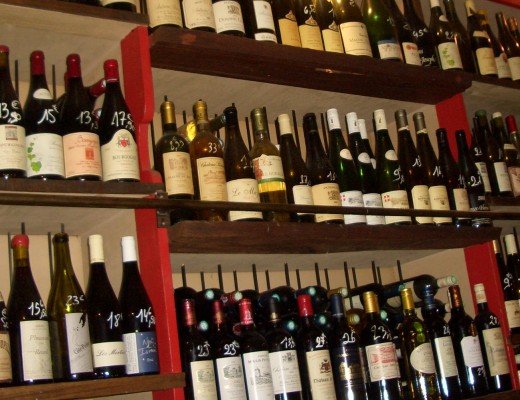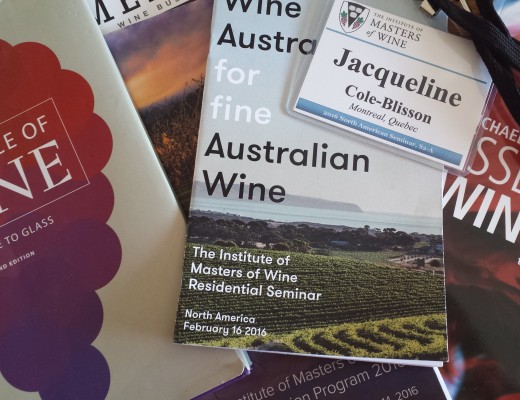This past week-end, I attended the International Cool Climate Chardonnay Celebration (I4C). Held in the Niagara region of Ontario, this joyous event is equal parts professional conference on cool climate winemaking, and raucous party toasting Canada’s arrival in the realm of world-class fine wines.
I tasted so many delicious sparkling wines, Chardonnays, Pinot Noirs and Cabernet Francs that I literally lost count. I came home brimming over with enthusiasm, ready to stock my cellar with Canadian wine. But I can’t.
Why you ask?
Because in Canada, we cannot legally order wine for home delivery from an out-of-province winery (except in BC, Manitoba and Nova Scotia). And because we have provincial alcohol monopolies, I can only buy what one single retailer decides to offer me.
In Canada, we cannot legally order wine for home delivery from an out-of-province winery.
According to the Canadian Vintners Association, 100% Canadian wine represents less than a 5 % wine sales market share in eight of our 10 provinces. No other wine producing country in the world has such ludicrously low domestic market share.
To test this theory, I took a stroll through my local SAQ the other day. I was happy to see a prominent “Origine Québec” section. However, when I looked for wines from Canada’s other provinces, I was sorely disappointed. There were a total of three wines. They were sitting in the category headed “Autres Pays” (Other Countries), mixed in with wines from obscure eastern European origins.
When I asked an employee if this was the extent of their domestic range, he reassured me that there were more in the produits réguliers (general list) section. He led me to the aisle. Under the category “United States”, I found 2 more Canadian wines.
Canadian wine represents less than a 5 % wine sales market share in eight of our 10 provinces.
Granted, this was one of the smaller format, SAQ Classique stores. But it is located in the heart of one of Montréal’s busiest commercial and residential neighbourhoods. While the larger SAQ Séléction outlets have a better range of Canadian wines, these stores are fewer and farther between.
I can always order on-line from the liquor board, but the selection is a mere fraction of what is on offer direct from the wineries.
So why can’t I just order direct? Because provincial laws exist across Canada that prohibit the cross-border movement of alcohol. Even if I were to get in my car and drive the 4.5 hours to Prince Edward County or 6.5 hours to Niagara, I still couldn’t legally bring back more than 12 bottles (9 litres).
Nearly a century since the end of prohibition, and we are still being told that we require public supervision of our alcohol intake…
In 2012 Gerard Comeau, a New Brunswick native, was fined 292$ for bringing Québec purchased beer into the province. Comeau refused to pay, citing section 121 of Canada’s constitution which promises free trade of goods between provinces. After a 5-year legal battle, the Supreme Court of Canada ruled against Comeau. They argued that the New Brunswick provincial legislation (section 134B) was not intended to restrict trade, simply to “enable public supervision of the production, movement, sale, and use of alcohol within New Brunswick”.
Nearly a century since the end of prohibition, and we are still being told by the Canadian powers-that-be, that we require public supervision of our alcohol intake. And that this imperative trumps our constitutional right to free trade.
The subject of interprovincial alcohol trade was on the agenda of last week’s meeting of Canada’s premiers. The consensus reached was less than impressive. While the premiers agree to “significantly increase personal use exemption limits”, according to New Brunswick Premier Brian Gallant, no specific amount or clear indication of timelines were given.
It is not simply the principle of the matter that irks me, it is the great disservice being done to our fledgling wine industry.
And no matter what the new limits are, the very fact that there are limits flies in the face of free trade. It is not simply the principle of the matter that irks me, it is the great disservice being done to our fledgling wine industry. It would seem that our governments are far more concerned with protecting the revenue stream from alcohol monopolies, than supporting the development of Canada’s wineries.
Great wine is being made across Canada – from British Columbia to Nova Scotia. If you want to stand behind Canadian grape growers and winemakers, head on over to FreeMyGrapes and make your voice heard.
You can toast your contribution with a glass of fine Canadian sparkling wine. Stay tuned for bubbly recommendations in next article.





No Comments